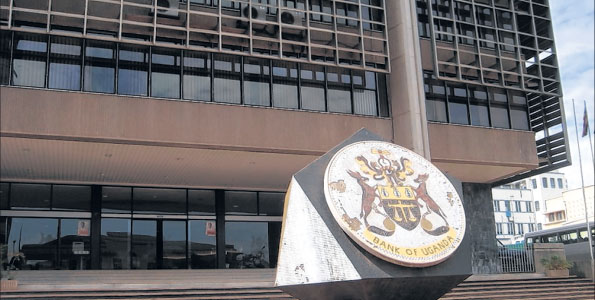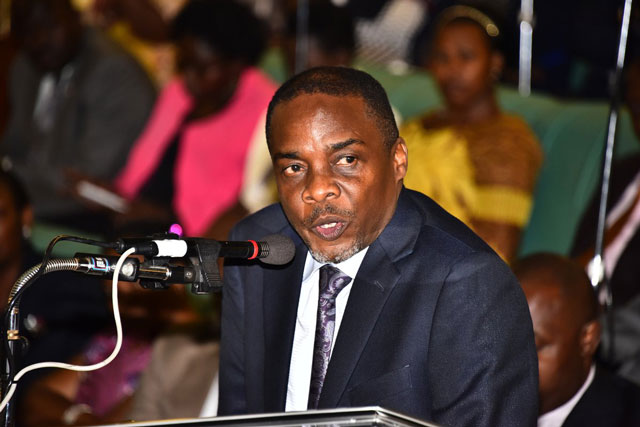Justice and Constitutional Affairs Minister, Prof. Ephraim Kamuntu Presenting his Ministry’s statement on NRM manifesto implementation
The Government of Uganda is constructing a storied twin tower to house the Supreme Court and Court of Appeal. Justice and Constitutional Affairs Minister, Prof. Ephraim Kamuntu says the construction worth Shs63.9billion is due for completion next year 2022.
He said the project will afford the two appellate Courts a permanent home and save the government (taxpayers) more than Shs6billion per year which is currently being spent on rent for the two courts. This is part of the ministry’s plan for the 2021-2026 period.
The Minister made the remarks while giving Ministry of Justice and Constitutional Affairs’ accountability for the NRM manifesto 2016-2021 at OPM Auditorium on Wednesday.
Ministry of Justice and Constitutional Affairs also plans to make every district a magisterial area with a Chief Magistrate, appoint /hire acting Judges on short-term basis, expand the use of alternative dispute, Elimination of Case Backlog (cases that are over three years), improve Legal Advisory Services, Regulate the Legal Profession, carry out effective representation of Government in Court, effective administration of Estates of deceased, Strengthening the legal institutional frameworks and Strengthen Anti-Corruption Institutions in particular Judiciary and DPP.
The ministry plans to strengthen a People Centered JLOS Service Delivery System, Implement the Bill Of Rights and Entrench A Human Rights Based Approach in the Sector, Strengthen JLOS Business Processes to Promote Private Sector Development, De-concentrate service delivery and ensure functional and physical presence of JLOS service points, Strengthen Justice for children, Ensure stakeholders empowerment, gender equality and equitable access to justice, Strengthen informal justice and transitional justice mechanisms, Strengthen JLOS Business Processes to Promote Private Sector Development, Reform and update laws to promote competitiveness and regional integration, Strengthen commercial and land dispute resolution processes and institutions, Strengthen business registries (URSB, DCIC, NIRA, NGO Bureau) and carry out clearance of Court Award Arrears among others.
CHALLENGES
According to Kamuntu, high tribunal caseload of 1,200 as at 31st December 2020 remains a big challenge. This represents a 9% increase from the annual closing date case load of 1098 in 2019. The increased caseload was as a result of tribunals not functioning in 2020 and part of 2021 due to lack of Commission quorum as required by Article 51 of the Constitution arising out of the absence of a Chairperson.
“ Ever since the Government decentralised the payment of court awards and compensation to MDAs effected on 1st July 2015, the decision has been faced with challenges of some complainants failing to follow up payments. Many MDAs do not provide adequate budgets for the awards which leads to delays in access to justice by the human rights victims,” Kamuntu said, adding that as a result of continued development and prosperity for all, people are more aware of their rights and as a result there is increased litigation
By Francis Otucu





